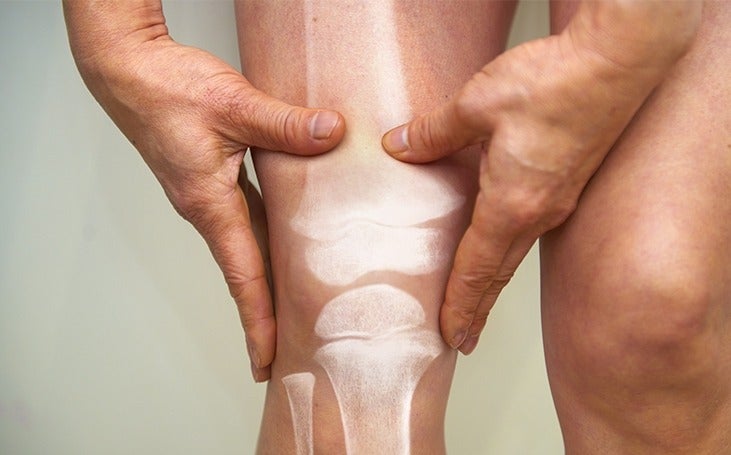Osteoporosis and How to Keep Your Bones Healthy

How it happens
To keep bones strong, your body breaks down old bone and replaces it with new bone tissue. As people age, more bone may be broken down than is replaced.
Who it affects
The risk of osteoporosis grows as you get older. At the time of menopause, women may lose bone quickly for several years. After that, the loss slows down but continues. In men, the loss of bone mass is slower. But, by age 65 or 70, men and women are losing bone at the same rate.
Signs to watch for
Osteoporosis generally doesn’t have any symptoms until a fracture occurs. But some warning signs that you should discuss with your doctor include:
- Bones that break easily
- Height loss or stooping
- Unexplained bone or joint pain
What to do if you recently had a fracture
Women and men who have had a fracture are at a high risk of experiencing another one. A fracture over the age of 50, or several fractures before that age, may be a warning sign that osteoporosis has developed. If you are over the age of 65 and have recently had a fracture, talk to your doctor about having a bone density test. Also, ask if there are medications appropriate for you that can treat or prevent osteoporosis.
How to keep your bones strong
- Calcium: Eat low-fat dairy foods, canned fish such as salmon, and dark-green leafy vegetables.
- Vitamin D: Your body uses vitamin D to absorb calcium. Most people’s bodies are able to make enough vitamin D if they are out in the sun without sunscreen for 10 to 15 minutes at least twice a week. You can also get vitamin D from eggs, fatty fish, and cereal and milk fortified with vitamin D.
- Exercise: Your bones and muscles will be stronger if you are physically active. Weight-bearing exercises such as jogging or tennis are best for preventing osteoporosis.
- Medicines: Some common medicines can make bones weaker. These include glucocorticoids used for arthritis and asthma, some antiseizure drugs, certain sleeping pills, treatments for endometriosis, and some cancer drugs. An overactive thyroid gland or using too much thyroid hormone for an underactive thyroid can also be a problem. If you are taking these medicines, talk to your doctor about what you can do to help protect your bones.
- Stop smoking: People who smoke have an increased chance of breaking a bone.
Resources & Tools
Drug Search
Use the drug search tools to find out if your drugs are covered and which tier they fall under on your plan type.
Find a Doctor
Find a doctor within your Tufts Health Plan Medicare Preferred HMO network or your Tufts Health Plan Senior Care Options network.
Health Library A-Z
Tufts Health Plan has partnered with Healthwise to provide members with access to a library of high-quality content on conditions, treatments and more.